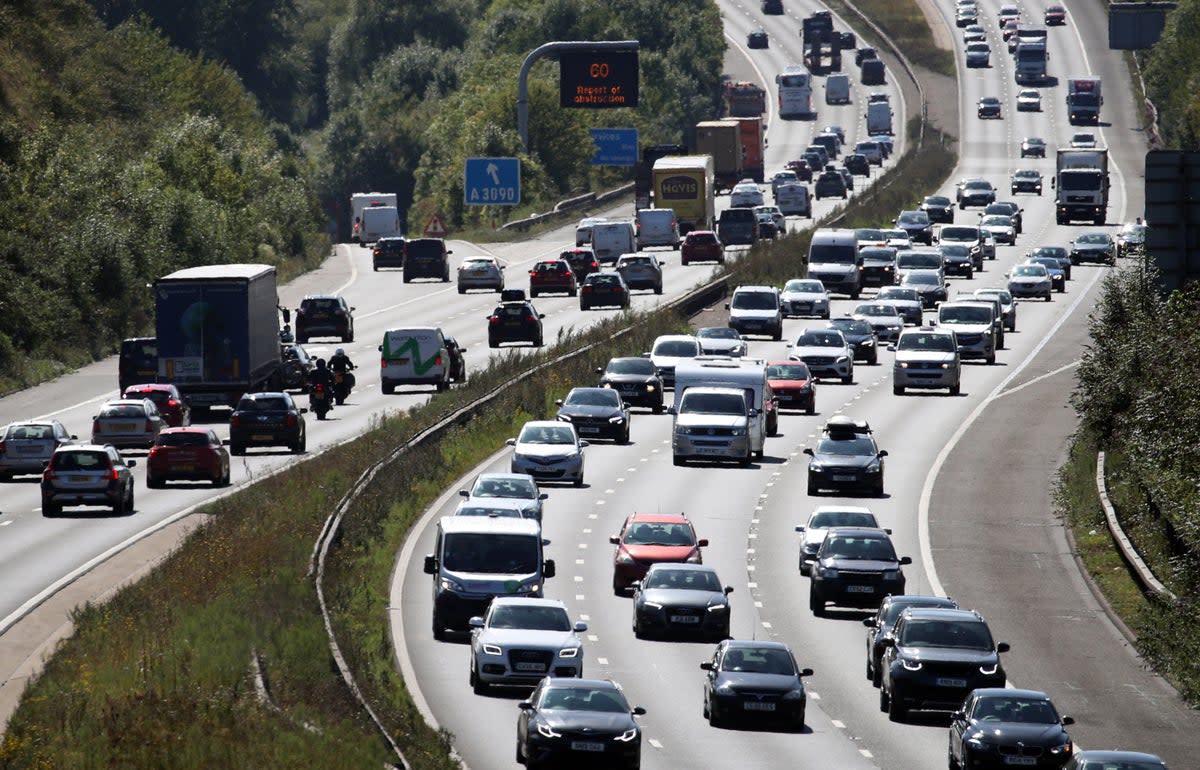Self-driving cars could be on roads across Britain by 2023 under new government plans

- Oops!Something went wrong.Please try again later.
Self-driving cars could be on British roads by 2023 under new plans unveiled by the government.
Transport secretary Grant Shapps has said that the first cars, coaches and lorries with self-driving features could be operating on motorways next year. Self-driving features include adaptive cruise control, where a car accelerates and brakes to maintain a selected distance from the car infront, and lane-centering steering, where the vehicle is kept in the center of a marked lane.
The initial rollout would then be followed by the introduction of fully fledged self-driving vehicles on British roads by 2025.
The scheme is backed by a £100million investment to boost the rollout and the Department for Transport estimate the self-driving industry could create up to 38,000 jobs and be worth £42billion.
The plans will see new legislation introduced to allow for the safe wider rollout of self-driving vehicles in the second 2025 phase – backed by £34million worth of research to support safety developments to inform new laws.
Under proposals drawn up by the Law Commission, drivers could not be prosecuted for careless or dangerous driving. They will also not be penalised for speeding or running a red light if the car is in self-driving mode.
A further £20million will be used to help launch commercial self-driving services – building on an existing £40million investment – and another £6million will be used for market research and to support the commercialisation of the technology.
We want the UK to be at the forefront of developing and using this fantastic technology, and that is why we are investing millions in vital research into safety
Transport Secretary Grant Shapps
Self-driving and autonomous vehicle technology has been in development for a number of years, with dozens of companies around the world working on and testing vehicles – some already on public roads.
The Government said the rollout of the technology could revolutionise public transport, especially for those who do not drive, and could help reduce road collisions caused by human error.
It said vehicles that can drive themselves on motorways could be on sale within the next year, but those would require a valid driving licence so the user could drive the vehicle on other roads.
Other self-driving vehicles, such as those used for public transport of deliveries and which the Government wants on roads by 2025, would be used without a driving licence as they would be completely autonomous.
“The benefits of self-driving vehicles have the potential to be huge. Not only can they improve people’s access to education and other vital services, but the industry itself can create tens of thousands of job opportunities throughout the country,” Transport Secretary Grant Shapps said.
“Most importantly, they’re expected to make our roads safer by reducing the dangers of driver error in road collisions.

“We want the UK to be at the forefront of developing and using this fantastic technology, and that is why we are investing millions in vital research into safety and setting the legislation to ensure we gain the full benefits that this technology promises.”
The Government said it was now consulting on safety around self-driving technology and planned to build new legislation around existing laws, and would state that manufacturers are responsible for a vehicle’s actions when self-driving was active – meaning a human driver would not be liable in incidents where self-driving was active.
In response to the plans, AA president Edmund King said: “The automotive world is changing rapidly and so the Government is right to embrace the positive changes offered by this new technology, and back it by funding research and putting forward legislation.
“Assisted driving systems, for example, autonomous emergency braking and adaptive cruise control are already helping millions of drivers stay safe on the roads.
“It is still quite a big leap from assisted driving, where the driver is still in control, to self-driving, where the car takes control.
“It is important that the Government does study how these vehicles would interact with other road users on different roads and changing weather conditions.
“However, the ultimate prize, in terms of saving thousands of lives and improving the mobility of the elderly and the less mobile, is well worth pursuing.”

